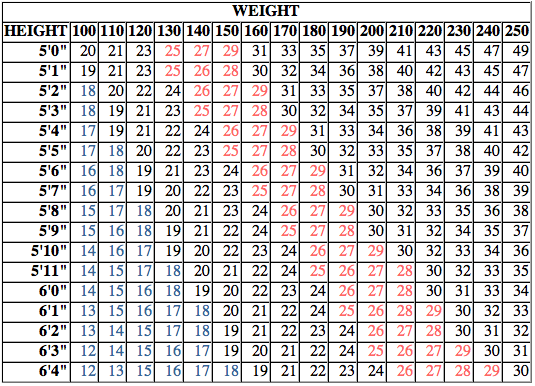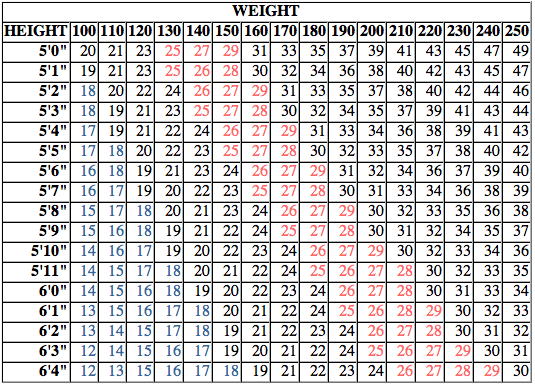Achieving and maintaining a healthy weight is one of the most crucial aspects of overall well-being, especially for men. But did you know that your body mass index (BMI) plays a significant role in determining your risk of various health issues? In this post, we’ll delve into the world of BMI calculation for men, providing you with a comprehensive guide to help you understand your numbers.
What is BMI and Why Should You Care?
BMI is a widely used measure of body fat based on height and weight. It’s calculated by dividing your weight (in kilograms) by the square of your height (in meters). While it has its limitations, BMI serves as a useful tool for identifying potential health risks associated with being underweight or overweight.
The Importance of BMI for Men
As men, we often face unique challenges when it comes to maintaining a healthy weight. With increasing responsibilities and busy lifestyles, it’s easy to let our diets and exercise routines slide. However, neglecting your weight can have serious consequences, including:
- a higher risk of chronic diseases like diabetes, heart disease, and certain types of cancer
- a decreased ability to engage in physical activities you enjoy
- a negative impact on mental health and self-esteem
In the next section, we’ll explore how to calculate your BMI for men and what the results mean. Stay tuned!

Calculating Your BMI: A Step-by-Step Guide for Men
To calculate your BMI, you’ll need to know your weight (in kilograms) and height (in meters). Don’t worry if you’re not familiar with the metric system; we’ve got you covered. For simplicity’s sake, let’s use a calculator or an online BMI calculator.
Formula Time!
The formula to calculate your BMI is straightforward:
BMI = weight (in kg) / height (in meters) squared
For example, let’s say you weigh 80 kilograms and stand at 1.75 meters tall:
BMI = 80 kg / (1.75 m)²
This calculation gives you a BMI of approximately 24.5.
What Do the Results Mean?
Your BMI score falls into one of four categories:
- Underweight: BMI ≤ 18.5 (indicating a higher risk of malnutrition and related health issues)
- Normal weight: BMI = 18.5-24.9 (suggesting a healthy weight range with minimal risk of chronic diseases)
- Overweight: BMI = 25-29.9 (indicating an increased risk of health problems, such as diabetes and heart disease)
- Obese: BMI ≥ 30 (linked to a higher risk of chronic diseases, including certain types of cancer)
Keep in mind that BMI has its limitations. For instance, it doesn’t account for muscle mass or body composition, which can affect the accuracy of your results.
Take Control of Your Health
Now that you know how to calculate your BMI and what the results mean, it’s time to take action. By understanding your numbers, you’ll be better equipped to:
- Identify potential health risks associated with being underweight or overweight
- Motivate yourself to make healthier lifestyle choices, such as a balanced diet and regular exercise
- Monitor your progress and celebrate small victories along the way
Remember, achieving and maintaining a healthy weight is just one part of overall well-being. Stay tuned for our next section, where we’ll explore some practical tips to help you get started on your journey to optimal health!
Learn more about BMI and healthy weight from the Centers for Disease Control and Prevention (CDC)Calculating Your BMI: A Guide for Men
To calculate your BMI, you’ll need to know your weight (in kilograms) and height (in meters). You can use the following formula:
bmi = weight (kg) / height (m)²
For example, if your weight is 80 kg and your height is 1.75 m, your BMI would be:
bmi = 80 kg / (1.75 m)²
Simplifying the calculation:
bmi ≈ 27.78
What Do Your BMI Numbers Mean?
Here’s a breakdown of what your BMI numbers mean:
| BMI Category | Description |
|---|---|
| Underweight (18.5 or less) | You’re at risk of malnutrition, fatigue, and poor immune function. |
| Normal weight (18.6-24.9) | You’re at a reduced risk of chronic diseases like diabetes and heart disease. |
| Overweight (25-29.9) | You’re at an increased risk of developing chronic diseases like diabetes, heart disease, and certain cancers. |
| Obese (30 or greater) | You’re at a very high risk of developing chronic diseases like diabetes, heart disease, and certain cancers. |
Conclusion
Now that you know how to calculate your BMI for men, it’s essential to take action based on the results. Remember:
- If you’re underweight or normal weight, focus on maintaining a healthy diet and exercise routine.
- If you’re overweight or obese, consider consulting with a healthcare professional about creating a personalized plan to achieve your weight loss goals.
By understanding your BMI and making informed choices, you’ll be taking a crucial step towards achieving overall well-being. So, take control of your health today!
Average core body temperature: Explore the normal range for human body temperature and what it means for your overall health. From exercise to sleep, learn how your body temperature can impact your daily life.
He is a fool and that should answer all your questions: Dive into this intriguing article to uncover the surprising truth behind this thought-provoking title. Find out what lies beneath the surface of this enigmatic statement.


